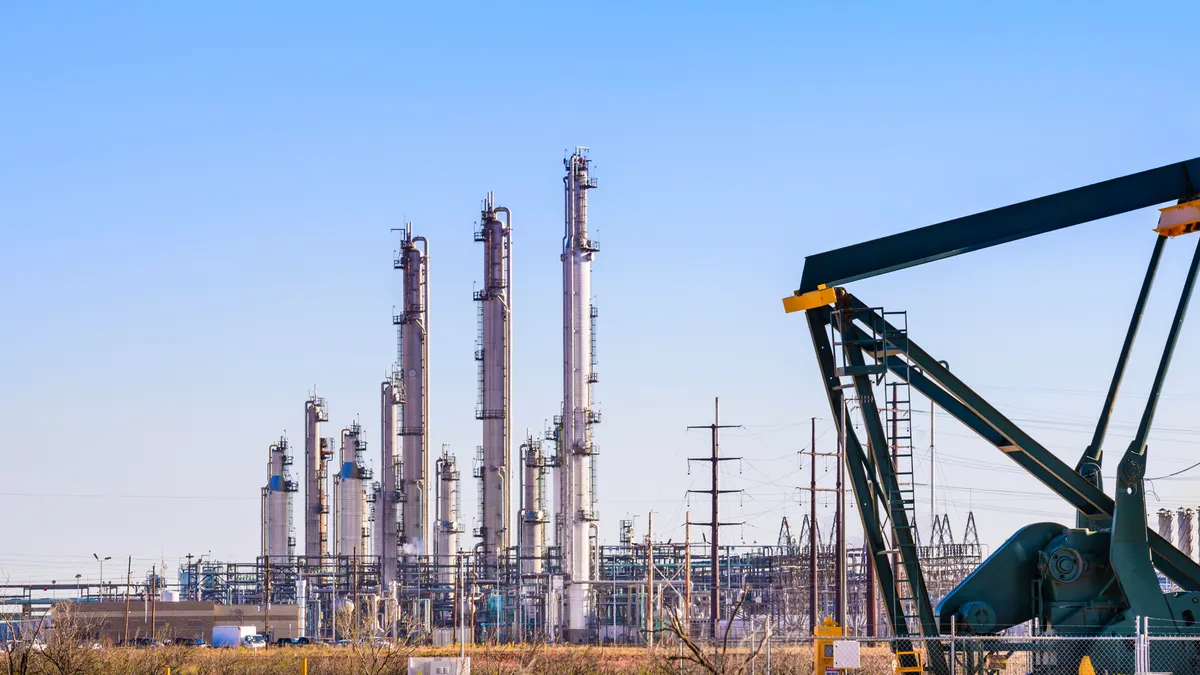Dive Brief:
- The Public Utilities Commission of Texas is requesting information on how distributed energy resources can boost reliability, and what grid upgrades would be required to facilitate their integration. Initial responses to the inquiry are due June 15, in advance of a formal rulemaking.
- DERs are a "holy grail issue" for the electric grid, Commissioner Will McAdams said at the PUCT's open meeting on Thursday. The questions involved may be considered alongside efforts to standardize the distribution system interconnection process, he said.
- Commissioners also discussed development of a new Firm Fuel Supply Service (FFSS) that would incentivize gas generation units with firm storage to be available in the 2022-23 winter. Looking further ahead, commissioners said they will also consider encouraging generators to purchase more coal for on-site storage.
Dive Insight:
The PUCT on Thursday continued its work to overhaul the state's wholesale markets in the wake of Winter Storm Uri and widespread blackouts last year. Commissioners are rushing to hammer out details that will inform an Aug. 1 FFSS request for proposals to be issued by the state's grid operator.
An April 20 memo by Commissioner Lori Cobos sketched out what resources could be eligible in the Electric Reliability Council of Texas' first FFSS procurement. Commissioners agreed those would be limited to dual-fuel capable generation units with on-site alternative fuel storage, and generators that own and control the pipeline to a storage facility.
That limits the first tranche of FFSS resources to certain gas units, but commissioners discussed expanding the product for the 2023-24 winter and beyond.
"Coal piles provide firm fuel," Commissioner Jimmy Glotfelty said. "I would be interested in looking, in perhaps a second phase, if additional coal stocks beyond what is normally contracted for during winter months, or times of need, would be considered."
Coal is "very firm," Chairman Peter Lake agreed. "I think it's worthwhile to include consideration of coal for phase two."
More gas units could be eligible for an expanded FFSS product, as well. Commissioners discussed allowing units with fuel supply arrangements consisting of off-site storage with firm transportation contracts to participate in future years.
Cobos did raise some concerns regarding additional coal purchases.
"I've been reading that coal prices are going up. I've also been reading that the [U.S. Environmental Protection Agency] is coming out with regulations that impact coal," she said, referring to cross-state air rules. "What are we ultimately going to have to pay for, a pile of coal? Or are we going to be asked to pay for a scrubber?"
PUCT wants help with DER integration
Commission discussion of how distributed resources can boost Texas reliability was based around an April 20 memo filed by McAdams. There are nearly 3 GW of distributed generation resources on the ERCOT grid, and about a quarter of that was added in 2021, according to the memo.
"This is a dynamic and evolving area of the energy industry," McAdams said. "It is growing leaps and bounds by the day and it's only accelerated after Winter Storm Uri because everybody is looking at trying to have some type of backup power source on their house."
PUCT staff is developing a formal filing, based on the memo, to request one round of industry comments. Questions revolve around issues of distribution planning and control, costs, grid upgrades and the need for more data on distributed resources.
Questions include:
- What level of remote, granular controllability is possible?
- Presently, how are existing DERs utilized on distribution networks?
- What equipment, processes, and standards need to be implemented to allow for further DER participation?
As more Texans install backup generation following blackouts last winter, the request for comments on how to muster that resource is "a cry for help," McAdams said.
"If we can ever crack the code on [DERs], then the grid has unlimited potential in terms of resiliency capabilities and resource adequacy," McAdams said. "All the other grids are tackling this, and [the Federal Energy Regulatory Commission] is keenly interested in it."















